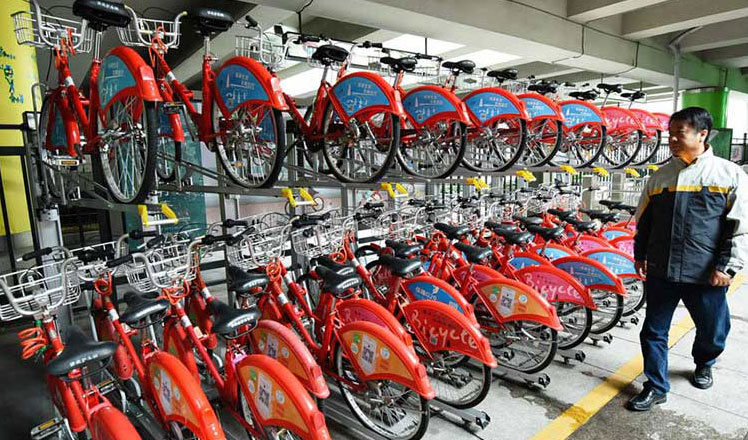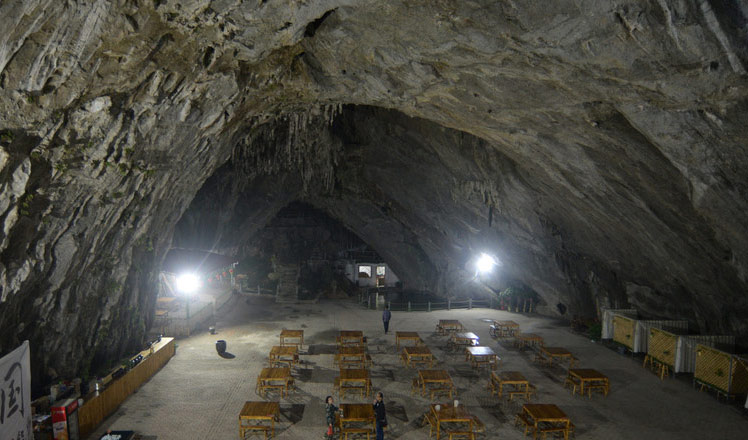Monitoring stations freed of interference
Updated: 2016-11-08 07:38
By Zheng Jinran(China Daily)
|
||||||||
China plans to make environmental monitoring stations independent to improve monitoring data, a move that facilitates policymakers' decisions and helps to efficiently reduce pollution, experts said on Monday.
All major monitoring stations for air, water, soil and offshore areas will be under the management of the central government, which will cut inference from local governments on data and assessments.
"Environmental monitoring is an important basis for scientific environmental management and decisions, and is important for assessing local governments' environmental protection," the ministry said in a statement on Monday.
"To guarantee that monitoring data is accurate and authentic is the bottom line of environmental monitoring, which cannot be violated by any individual or organization," Environment Minister Chen Jining said.
The China National Environmental Monitoring Center directly manages all 1,436 major air-quality monitoring stations in 338 major cities, which are usually operated by local environmental authorities, Fu Deqian, deputy head of the center, said on Monday.
China is confronted with many problems, including regulations not being implemented and a lack of technical standards for monitoring, the ministry said.
By 2020, China will build comprehensive systems to guarantee the quality of monitoring networks on air, water and soil, making them accurate and authentic.
He Kebin, head of the School of Environment at Tsinghua University said the plans are timely and necessary to help curb air pollution on Monday.
"Accurate monitoring data could help researchers to proof their models in forecasting and reducing air pollution, a key link in improving air quality," said He, adding that monitoring services need technical standards.
In addition, the solution to reducing smog and excessive ground-level ozone concentrations also rely on accurate monitoring data, which could help researchers analyze sources of pollution, said Zhang Yuanhang, a professor at Peking University's College of Environmental Science and Engineering.
- Black humor dots NYC'S Times Square on election day
- Cambodia marks 63rd Independence Day
- Streets are alive with giant fried eggs in Santiago
- Climate Change Conference celebrates Forest Action Day
- Midnight vote in tiny New Hampshire town kicks off
- Swedish prosecutor says Assange interview set for Nov 14

 Technology adds luster to 11.11 shopping festival
Technology adds luster to 11.11 shopping festival
 The 75th anniversary of Red Square parade celebrated
The 75th anniversary of Red Square parade celebrated
 Trump trumps Hillary: Cheers, tears and shock
Trump trumps Hillary: Cheers, tears and shock
 Bi-level bicycle storage in East China's Hangzhou
Bi-level bicycle storage in East China's Hangzhou
 In pics: Dine deep underground in a cave
In pics: Dine deep underground in a cave
 Premier Li visits the State Hermitage Museum
Premier Li visits the State Hermitage Museum
 Hogwarts-like assembly hall attracts visitors
Hogwarts-like assembly hall attracts visitors
 50,000 people set new Guinness square dance record
50,000 people set new Guinness square dance record
Most Viewed
Editor's Picks

|

|

|

|

|

|
Today's Top News
US election rhetoric unlikely to foreshadow future US-China relations
'Zero Hunger Run' held in Rome
Trump outlines anti-terror plan, proposing extreme vetting for immigrants
Phelps puts spotlight on cupping
US launches airstrikes against IS targets in Libya's Sirte
Ministry slams US-Korean THAAD deployment
Two police officers shot at protest in Dallas
Abe's blame game reveals his policies failing to get results
US Weekly

|

|







